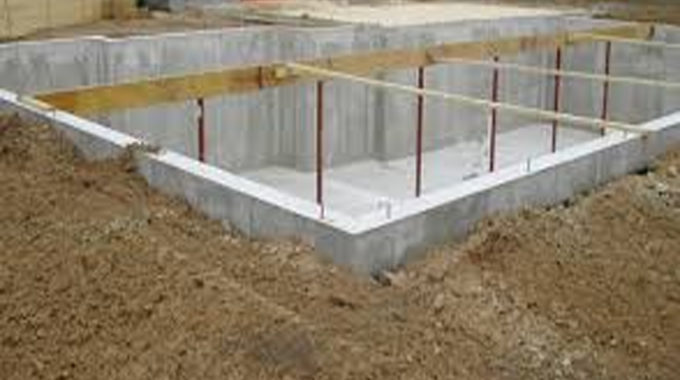The reason for a basis is usually to support a building and stop it from sliding or slipping. Most foundations are constructed of concrete, nevertheless, they may also be constructed from stone, wood, and brick. Some of the more prevalent forms of foundations incorporate a concrete slab foundation, a crawlspace foundation along with a basement foundation.
Concrete slab foundations are designed by pouring concrete right into a wood frame that is certainly flush with all the ground. The concrete usually rests on a bed of gravel and is thicker where the outside and interior walls are situated. Thick wire is put to the concrete to aid prevent it from cracking. Slab foundations are common in mild and warm climates in which the ground doesn’t freeze.
A crawlspace foundation is commonly seen in places the place that the soil has a heavy clay content. It is developed with a hollow block or poured concrete frame that supports the home’s perimeter walls. It leaves room for someone to crawl relating to the floor of a house along with the ground. One of the advantages of a crawlspace foundation is always that there exists space for the installation of plumbing, electrical components, and air ducts.
Basement foundations have significant room between the home’s floor and ground. They are normally constructed with a concrete slab floor and poured concrete or concrete block walls.
Foundations came become damaged with time on account of:
- Inadequate construction
- Poor soil compaction
- Poor drainage
- Leaking roofs
- Concrete shrinkage
- Expansive soil
Evidence of a basis that is wanting repair includes floor cracks, wall cracks, foundation cracks, bowed walls, uneven or sloping floors, leaning chimneys, wall separation, wall rotation, nail popping, and doors and windows which don’t open or close properly. Moisture can enter homes through wall cracks, and also doors and windows that don’t fit correctly, causing further damage to the home. Air also can penetrate through cracks and openings, increasing electric bills. Severe foundation damage can eventually create a partial or total building collapse.
Rainwater, sprinkler water, and water from broken plumbing may cause significant problems for a home’s foundation. Even though initial signs and symptoms of water damage might appear insignificant, any proof of water problems ought to be thoroughly investigated to avoid the building blocks from weakening.
Plumbing needs to be regularly checked for leaks, along with appliance hoses and water heaters. One way to determine if you can find any plumbing issues is always to have a water meter reading after which shut off all faucets and then any appliances who use water. Don’t flush toilets for an hour. Then, recheck the meter to ascertain if the amount of water used has risen. If so, that shows that you do have a plumbing leak which could then cause problems for the muse. You could also purchase water alarms with built-in moisture sensors, and put them to use near water-using appliances, and under sinks and toilets.
If you suspect your foundation has structural issues, a qualified foundation repair company must be contacted at the same time to conduct an intensive inspection of your house foundation. You will get valuable advice regarding the supply of any problems, and what ought to be done to correct the situation. If foundation repairs are needed, they need to be made immediately to prevent costlier trouble which will develop later on.














